- Home
- Virginia Woolf
The Common Reader Page 3
The Common Reader Read online
Page 3
Indeed, he had need of both. From the first his life was full of conflict and difficulty. Harvey the rope-maker’s son might put a brave face on it, but still in the society of gentlemen the lowness of his birth galled him. Think, then, the sedentary Harvey counselled him, of all those unknown people who have nevertheless triumphed. Think of ‘Alexander, an Unexpert Youth’30; think of David, ‘a forward stripling, but vanquished a huge Giant’31; think of Judith and of Pope Joan and their exploits32; think, above all, of that ‘gallant virago … Joan of Arc, a most worthy, valiant young wench … what may not an industrious and politic man do … when a lusty adventurous wench might thus prevail?’33 And then it seems as if the smart young men at Cambridge twitted the rope-maker’s son for his lack of skill in the gentlemanly arts. ‘Leave writing’, Gabriel counselled him, ‘which consumeth unreasonable much time … You have already plagued yourself this way’.34 Make yourself master of the arts of eloquence and persuasion. Go into the world. Learn swordsmanship, riding, and shooting. All three may be learnt in a week. And then the ambitious but uneasy youth began to find the other sex attractive and asked advice of his wise and sedentary brother in the conduct of his love affairs. Manners, the other Harvey was of opinion, are of the utmost importance in dealing with women; one must be discreet, self-controlled. A gentleman, this counsellor continued, is known by his ‘Good entertainment of Ladies and gentlewomen. No salutation, without much respect and ceremony’35 – a reflection inspired no doubt by the memory of some snub received at Audley End. Health and the care of the body are of the utmost importance. ‘We scholars make an Ass of our body and wit’.36 One must ‘leap out of bed lustily, every morning in ye whole year’37 One must be sparing in one’s diet, and active, and take regular exercise, like brother H.,38 ‘who never failed to breathe his hound once a day at least’.39 There must be no ‘buzzing or musing’.40 A learned man must also be a man of the world. Make it your ‘daily charge’ ‘to exercise, to laugh; to proceed boldly’.41 And if your tormentors brawl and rail and scoff and mock at you, the best answer is ‘a witty and pleasant lronie’.42 In any case, do not complain, ‘It is gross folly, and a vile Sign of a wayward and forward disposition, to be eftsoons complaining of this, or that, to small purpose’.43 And if as time goes on without preferment, one cannot pay one’s bills, one is thrust into prison, one has to bear the taunts and insults of landladies, still remember ‘Glad poverty is no poverty’44, and if, as time passes and the struggle increases, it seems as if ‘Life is warfare’,45 if sometimes the beaten man has to own, ‘But for hope ye Hart would brust’,46 still his sage counsellor in the study will not let him throw up the sponge. ‘He beareth his misery best, that hideth it most’47 he told himself.
So runs the dialogue that we invent between the two Harveys – Harvey the active and Harvey the passive, Harvey the foolish and Harvey the wise. And it seems on the surface that the two halves, for all their counselling together, made but a sorry business of the whole. For the young man who had ridden off to Cambridge full of conceit and hope and good advice to his sister returned emptyhanded to his native village in the end. He dwindled out his last long years in complete obscurity at Saffron Walden. He occupied himself superficially by practising his skill as a doctor among the poor of the neighbourhood. He lived in the utmost poverty off buttered roots and sheep’s trotters. But even so he had his consolations, he cherished his dreams. As he pottered about his garden in the old black velvet suit, purloined, Nash says, from a saddle for which he had not paid, his thoughts were all of power and glory; of Stukeley and Drake48; of ‘the winners of gold and the wearers of gold’.49 Memories he had in abundance – ‘The remembrance of best things will soon pass out of memory; if it be not often renewed and revived’,50 he wrote. But there was some eager stir in him, some lust for action and glory and life and adventure that forbade him to dwell in the past. ‘The present tense only to be regarded’ 51 is one of his notes. Nor did he drug himself with the dust of scholarship. Books he loved as a true reader loves them, not as trophies to be hung up for display, but as living beings that ‘must be meditated, practised and incorporated into my body and soul’.52 A singularly humane view of learning survived in the breast of the old and disappointed scholar. ‘The only brave way to learn all things with no study and much pleasure’,53 he remarked. Dreams of the winners of gold and the wearers of gold, dreams of action and power, fantastic though they were in an old beggar who could not pay his reckoning, who pressed simples and lived off buttered roots in a cottage, kept life in him when his flesh had withered and his skin was ‘riddled and crumpled like a piece of burnt parchment’.54 He had his triumph in the end. He survived both his friends and his enemies – Spenser and Sidney, Nash and Perne. He lived to a very great age for an Elizabethan, to eighty-one or eighty-two; and when we say that Harvey lived we mean that he quarrelled and was tiresome and ridiculous and struggled and failed and had a face like ours – a changing, a variable, a human face.
DONNE AFTER THREE CENTURIES
When we think how many millions of words have been written and printed in England in the past three hundred years, and how the vast majority have died out without leaving any trace, it is tempting to wonder what quality the words of Donne possess that we should still hear. them distinctly today. Far be it from us to suggest even in this year of celebration and pardonable adulation (1931). that the poems of Donne are popular reading or that the typist, if we look over her shoulder in the Tube, is to be discovered reading Donne as she returns from her office. But he is read; he is audible – to that fact new editions and frequent articles testify, and it is worth perhaps trying to analyse the meaning that his voice has for us as it strikes upon the ear after this long flight across the stormy seas that separate us from the age of Elizabeth.
But the first quality that attracts us is not his meaning, charged with meaning as his poetry is, but something much more unmixed and immediate; it is the explosion with which he bursts into speech. All preface, all parleying have been consumed; he leaps into poetry the shortest way. One phrase consumes all preparation:
I long to talke with some old lover’s ghost,1
or
He is starke mad, whoever sayes,
That he hath beene in love an houre.2
At once we are arrested. Stand still, he commands,
Stand still, and I will read to thee
A Lecture, Love, in love’s philosophy.3
And stand still we must. With the first words a shock passes through us; perceptions, previously numb and torpid, quiver into being; the nerves of sight and hearing are quickened; the ‘bracelet of bright hair’4 burns in our eyes. But, more remarkably, we do not merely become aware of beautiful remembered lines; we feel ourselves compelled to a particular attitude of mind. Elements that were dispersed in the usual stream of life become, under the stroke of Donne’s passion, one and entire. The world, a moment before, cheerful, humdrum, bursting with character and variety, is consumed. We are in Donne’s world now. All other views are sharply cut off.
In this power of suddenly surprising and subjugating the reader, Donne excels most poets. It is his characteristic quality; it is thus that he lays hold upon us, summing up his essence in a word or two. But it is an essence that, as it works in us, separates into strange contraries at odds with one another. Soon we begin to ask ourselves of what this essence is composed, what elements have met together to cut so deep and complex an impression. Some obvious clues lie strewn on the surface of the poems. When we read the Saryres, for example, we need no external proof to tell us that these are the work of a boy. He has all the ruthlessness and definiteness of youth, its hatred of the follies of middle age and of convention. Bores, liars, courtiers – detestable humbugs and hypocrites as they are, why not sum them up and sweep them off the face of the earth with a few strokes of the pen? And so these foolish figures are drubbed with an ardour that proves how much hope and faith and delight in life inspire the savagery of youthful scorn. But, as we r
ead on, we begin to suspect that the boy with the complex and curious face of the early portrait – bold yet subtle, sensual yet nerve drawn – possessed qualities that made him singular among the young. It is not simply that the huddle and pressure of youth which outthinks its words had urged him on too fast for grace or clarity. It may be that there is in this clipping and curtailing, this abrupt heaping of thought on thought, some deeper dissatisfaction than that of youth with age, of honesty with corruption. He is in rebellion, not merely against his elders, but against something antipathetic to him in the temper of his time. His verse has the deliberate bareness of those who refuse to avail themselves of the current usage. It has the extravagance of those who do not feel the pressure of opinion, so that sometimes judgment fails them, and they heap up strangeness for strangeness’ sake. He is one of those nonconformists, like Browning and Meredith, who cannot resist glorifying their nonconformity by a dash of wilful and gratuitous eccentricity. But to discover what Donne disliked in his own age, let us imagine some of the more obvious influences that must have told upon him when he wrote his early poems – let us ask what books he read. And by Donne’s own testimony we find that his chosen books were the works of ‘grave Divines’5; of philosophers; of ‘jolly Statesmen, which teach how to tie The sinewes of a cities mistique bodie’6; and chroniclers. Clearly he liked facts and arguments. If there are also poets among his books, the epithets he applies to them, ‘Giddie fantastique’,7 seem to disparage the art, or at least to show that Donne knew perfectly well what qualities were antipathetic to him in poetry. And yet he was living in the very spring of English poetry. Some of Spenser might have been on his shelves; and Sidney’s Arcadia; and the Paradise of Dainty Devices, and Lyly’s Euphues.8 He had the chance, and apparently took it – ‘I tell him of new playes’9 – of going to the theatre; of seeing the plays of Marlowe and Shakespeare acted. When he went abroad in London, he must have met all the writers of that time – Spenser and Sidney and Shakespeare and Jonson; he must have heard at this tavern or at that talk of new plays, of new fashions in verse, heated and learned discussion of the possibilities of the English language and the future of English poetry. And yet, if we turn to his biography, we find that he neither consorted with his contemporaries nor read what they wrote. He was one of those original beings who cannot draw profit, but are rather disturbed and distracted by what is being done round them at the moment. If we turn again to Satyres, it is easy to see why this should be so. Here is a bold and active mind that loves to deal with actual things, which struggles to express each shock exactly as it impinges upon his tight-stretched senses. A bore stops him in the street. He sees him exactly, vividly.
His cloths were strange, though coarse; and black, though bare;
Sleevelesse his jerkin was, and it had beene
Velvet, but t’was now (so much ground was seene)
Become Tufftaffatie; 10
Then he likes to give the actual words that people say:
He, like to a high stretcht lute string squeakt, O Sir,
‘Tis sweet to talke of Kings. At Westminster,
Said I, The man that keepes the Abbey tombes,
And for his price doth with who ever comes,
Of all our Harries, and our Edwards talke,
From King to King and all their kin can walke:
Your eares shall heare nought, but Kings; your eyes meet
Kings only; The way to it, is Kingstreet. 11
His strength and his weakness are both to be found here. He selects one detail and stares at it until he has reduced it to the few words that express its oddity:
And like a bunch of ragged carrets stand
The short swolne fingers of thy gouty hand,12
but he cannot see in the round, as a whole. He cannot stand apart and survey the large outline so that the description is always of some momentary intensity, seldom of the broader aspect of things. Naturally, then, he found it difficult to use the drama with its conflict of other characters; he must always speak from his own centre in soliloquy, in satire, in self-analysis. Spenser, Sidney, and Marlowe provided no helpful models for a man who looked out from this angle of vision. The typical Elizabethan with his love of eloquence, with his longing for brave new words, tended to enlarge and generalise. He loved wide landscapes, heroic virtues, and figures seen sublimely in outline or in heroic conflict. Even the prose-writers have the same habit of aggrandisement. When Dekker sets out to tell us how Queen Elizabeth died in the spring, he cannot describe her death in particular or that spring in particular; he must diiate upon all deaths and all springs:
…the Cuckoo (like a single, sole Fiddler, that reels from Tavern to Tavern) plied it all the day long: Lambs frisked up and down in the vallies, kids and Goats leapt to and fro on the Mountains: Shepherds sat piping, country wenches singing: Lovers made Sonnets for their Lasses, whilst they made Garlands for their Lovers: And as the Country was frolic, so was the City merry …no Scritch-Owl frighted the silly Countryman at midnight, nor any Drum the Citizen at noon-day; but all was more calm than a still water, all husht, as if the Spheres had been playing in Consort: In conclusion, heaven lookt like a Pallace, and the great hall of the earth, like a Paradise. But O the short-liv’d Felicity of man! O world, of what slight and thin stuff is thy happiness! 13
– in short, Queen Elizabeth died, and it is no use asking Dekker what the old woman who swept his room for him said, or what Cheapside looked like that night if one happened to be caught in the thick of the throng. He must enlarge; he must generalise; he must beautify.
Donne’s genius was precisely the opposite of this. He diminished; he particularised. Not only did he see each spot and wrinkle which defaced the fair outline; but he noted with the utmost curiosity his own reaction to such contrasts and was eager to lay side by side the two conflicting views and to let them make their own dissonance. It is this desire for nakedness in an age that was florid, this determination to record not the likenesses which go to compose a rounded and seemly whole, but the inconsistencies that break up semblances, the power to make us feel the different emotions of love and hate and laughter at the same time, that separate Donne from his contemporaries. And if the usual traffic of the day – to be buttonholed by a bore, to be snared by a lawyer, to be snubbed by a courtier – made so sharp an impression on Donne, the effect of falling in love was bound to be incomparably greater. Falling in love meant, to Donne, a thousand things; it meant being tormented and disgusted, disillusioned and enraptured; but it also meant speaking the truth. The love poems, the elegies, and the letters thus reveal a figure of a very different calibre from the typical figure of Elizabethan love poetry. That great ideal, built up by a score of eloquent pens, still burns bright in our eyes. Her body was of alabaster, her legs of ivory; her hair was golden wire and her teeth pearls from the Orient. Music was in her voice and stateliness in her walk. She could love and sport and be faithless and yielding and cruel and true; but her emotions were simple, as befitted her person. Donne’s poems reveal a lady of a very different cast. She was brown but she was also fair; she was solitary but also sociable; she was rustic yet also fond of city life; she was sceptical yet devout, emotional but reserved – in short she was as various and complex as Donne himself. As for choosing one type of human perfection and restricting himself to love her and her only, how could Donne, or any man who allowed his senses full play and honestly recorded his own moods, so limit his nature and tell such lies to placate the conventional and the decorous? Was not ‘love’s sweetest part, Variety’? 14 ‘Of music, joy, life and eternity Change is the nursery’, 15 he sang. The timid fashion of the age might limit a lover to one woman. For his part he envied and admired the ancients, ‘who held plurality of loves no crime’ 16:
But since this title honour hath been us’d,
Our weak credulity hath been abus’d.17
We have fallen from our high estate; the golden laws of nature are repealed.
So through the glass of Donne’s poetry
now darkly clouded, now brilliantly clear, we see pass in procession the many women whom he loved and hated – the common Julia whom he despised; the simpleton, to whom he taught the art of love; she who was married to an invalid husband, ‘cag’d in a basket chair’18; she could only be loved dangerously by strategy; she who dreamt of him and saw him murdered as he crossed the Alps; she whom he had to dissuade from the risk of loving him; and lastly, the autumnal, the aristocratic lady for whom he felt more of reverence than of love – so they pass, common and rare, simple and sophisticated, young and old, noble and plebeian, and each casts a different spell and brings out a different lover, although the man is the same man, and the women, perhaps, are also phases of womanhood rather than separate and distinct women. In later years the Dean of St Paul’s would willingly have edited some of these poems and suppressed one of these lovers – the poet presumably of ‘Going to Bed’ and ‘Love’s Warr’. But the Dean would have been wrong. It is the union of so many different desires that gives Donne’s love poetry not only its vitality but also a quality that is seldom found with such strength in the conventional and orthodox lover – its spirituality. If we do not love with the body, can we love with the mind? If we do not love variously, freely, admitting the lure first of this quality and then of that, can we at length choose out the one quality that is essential and adhere to it and so make peace among the warring elements and pass into a state of being which transcends the ‘Hee and Shee’?19 Even while he was at his most fickle and gave fullest scope to his youthful lusts, Donne could predict the season of maturity when he would love differently, with pain and difficulty, one and one only. Even while he scorned and railed and abused, he divined another relationship which transcended change and parting and might, even in the bodies’ absence, lead to unity and communion:

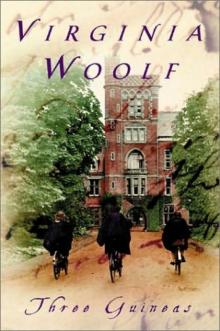 Three Guineas
Three Guineas Flush
Flush Mrs. Dalloway
Mrs. Dalloway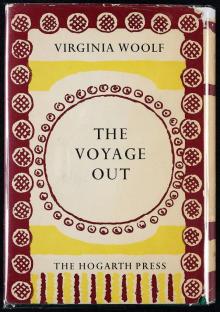 The Voyage Out
The Voyage Out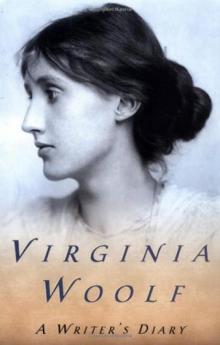 A Writer's Diary: Being Extracts From the Diary of Virginia Woolf
A Writer's Diary: Being Extracts From the Diary of Virginia Woolf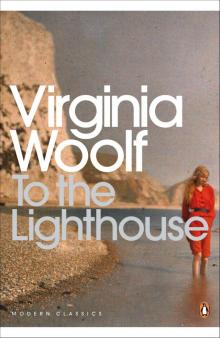 To The Lighthouse
To The Lighthouse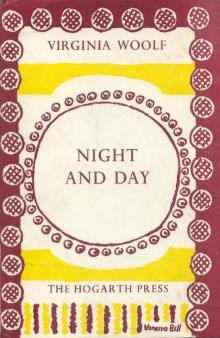 Night and Day
Night and Day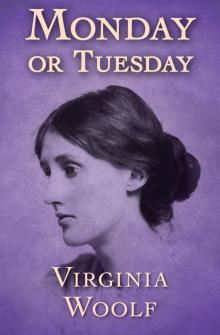 Monday or Tuesday
Monday or Tuesday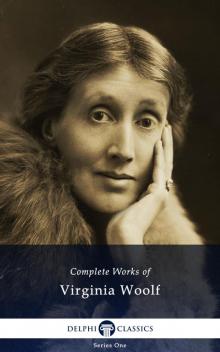 Complete Works of Virginia Woolf
Complete Works of Virginia Woolf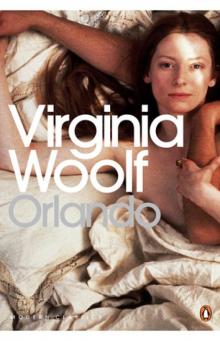 Orlando
Orlando Genius and Ink
Genius and Ink Mrs. Dalloway (Annotated)
Mrs. Dalloway (Annotated)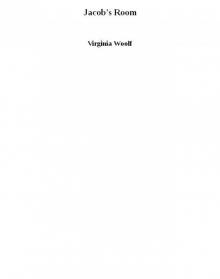 Jacob's Room
Jacob's Room THE RUSSIAN POINT OF VIEW
THE RUSSIAN POINT OF VIEW A Writer's Diary
A Writer's Diary Woolf Short Stories
Woolf Short Stories